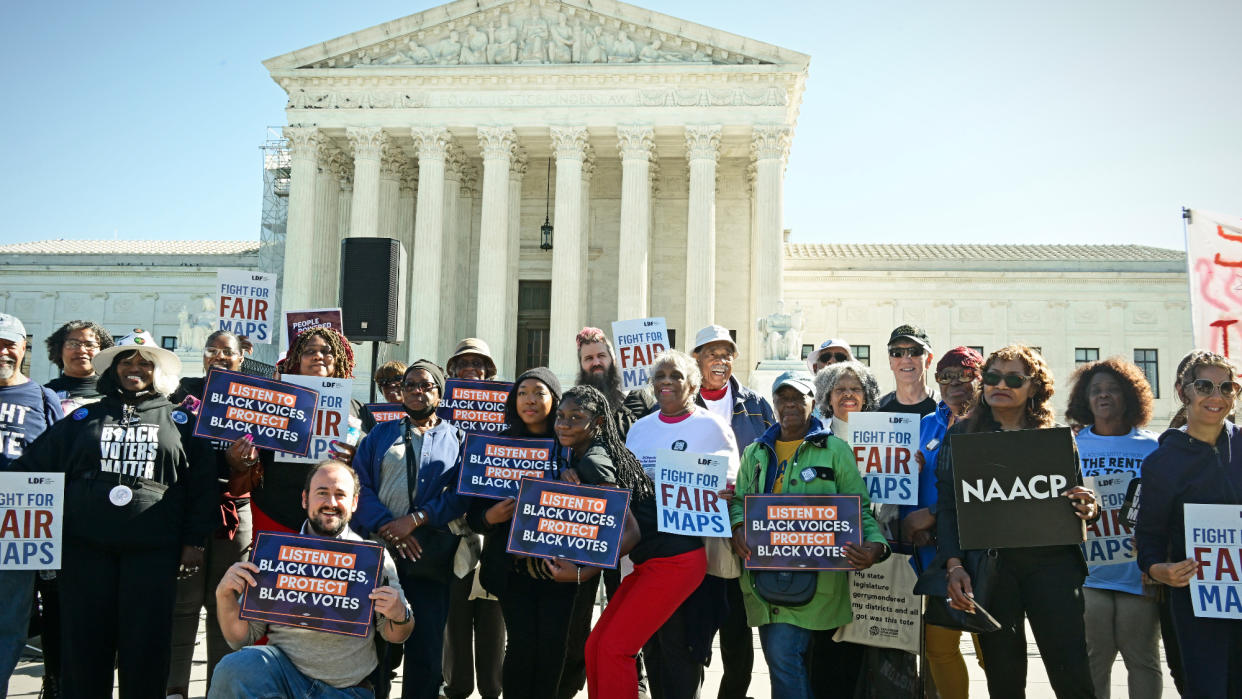Supreme Court lowers bar for racial gerrymanders

- Oops!Something went wrong.Please try again later.
What happened
The Supreme Court voted 6-3 Thursday to keep in place a South Carolina congressional map that a lower court had ruled an impermissible racial gerrymander. Justice Samuel Alito, writing for the court's conservatives, said the challengers had failed to prove the state's Republican legislature had removed a swath of Black voters from the Charleston-area swing district due to race instead of allowable "partisan preferences."
Who said what
"The challengers introduced more than enough evidence of racial gerrymandering," Justice Elena Kagan wrote in a blunt dissent for the court's three liberals. Alito's majority opinion betrays a "lack of familiarity with the events and evidence central to this case," she said, and creates "special rules to specifically disadvantage suits to remedy race based-redistricting."
The court's conservative majority "effectively substituted their judgment about what actually happened for that of the district court," said University of Texas law professor Steve Vladeck to CNN. The Supreme Court is only supposed to do that when "lower court findings are clearly erroneous," Rick Hasen said at Election Law Blog. The "bottom line practical" impact of the ruling is that Alito has "once again come up with a legal framework that makes it easier for Republican states to engage in redistricting to help white Republicans maximize their political power."
What next?
Alito's opinion "did not entirely foreclose the possibility that civil rights groups might eventually prevail" using a different legal theory, Politico said. But "the chances of any changes in the map this year seem vanishingly remote."

